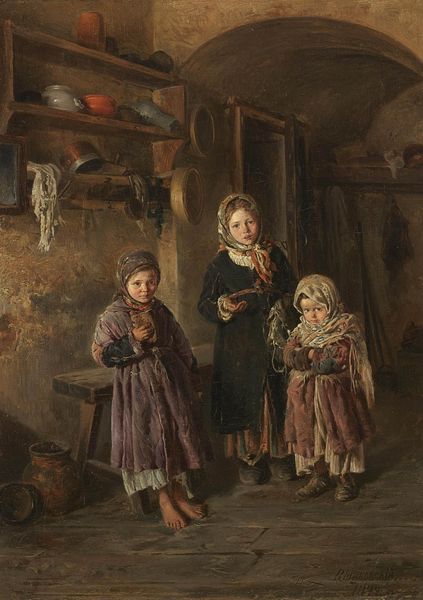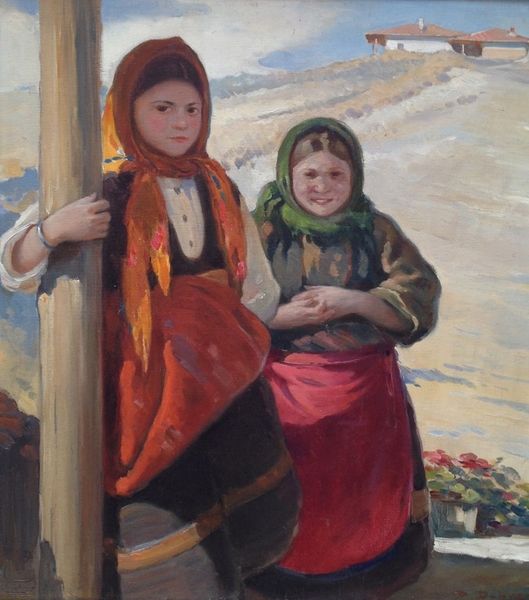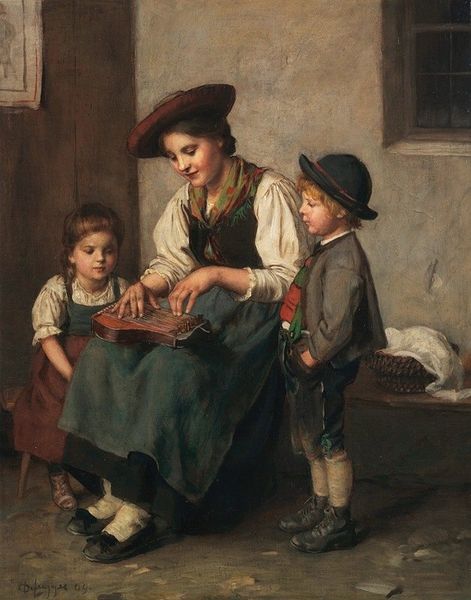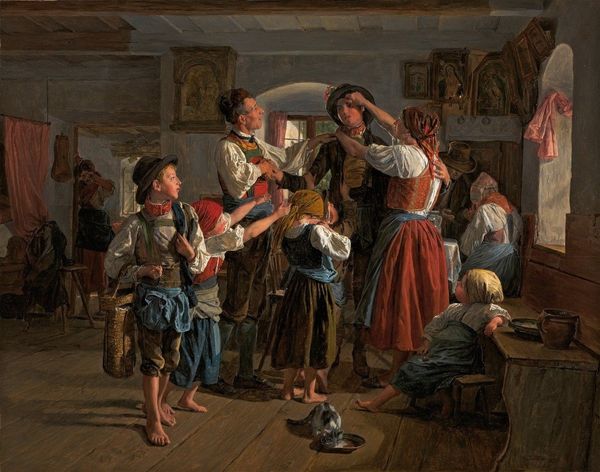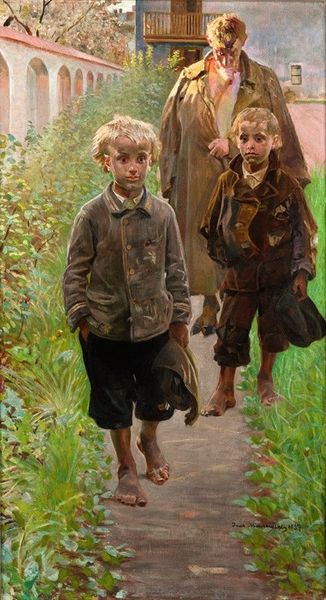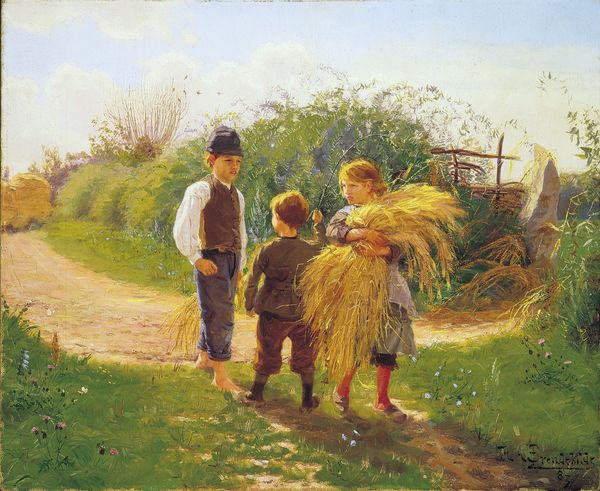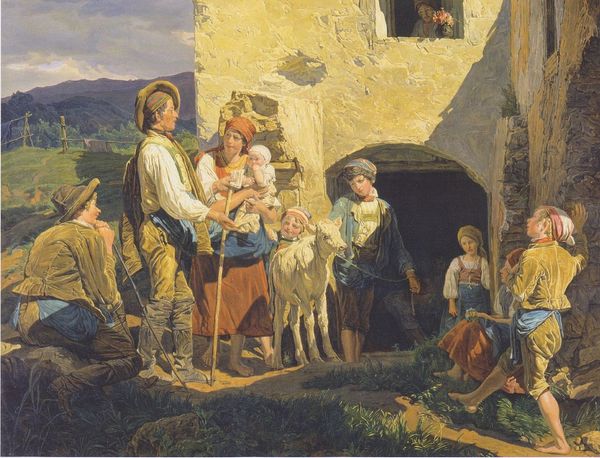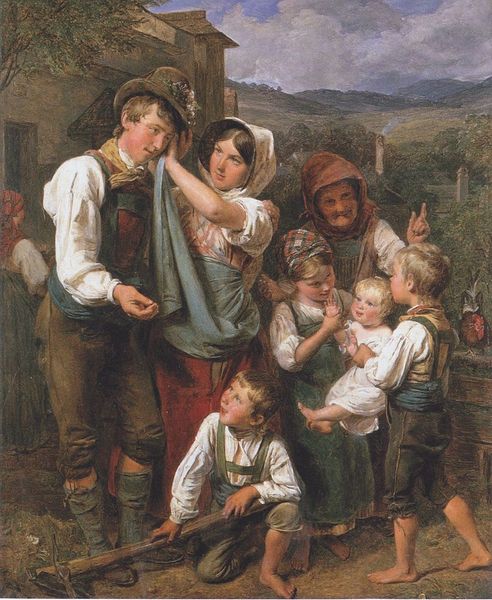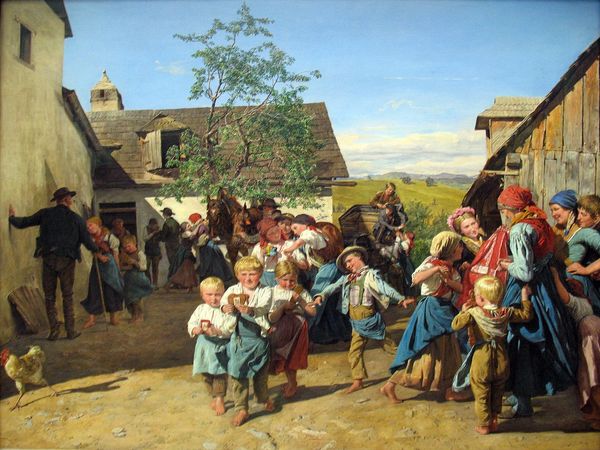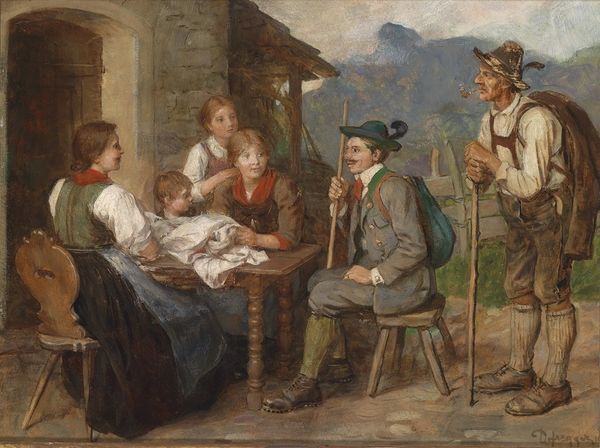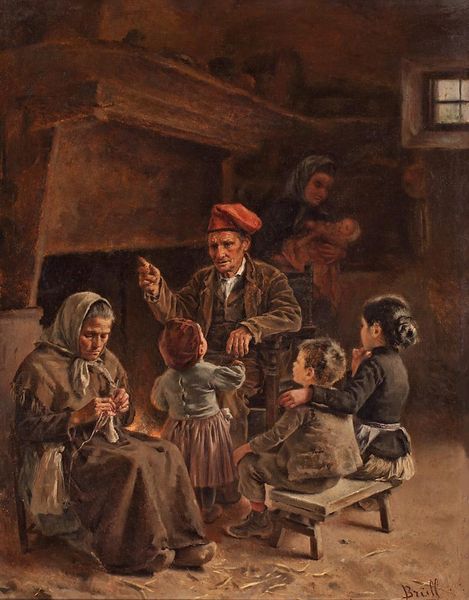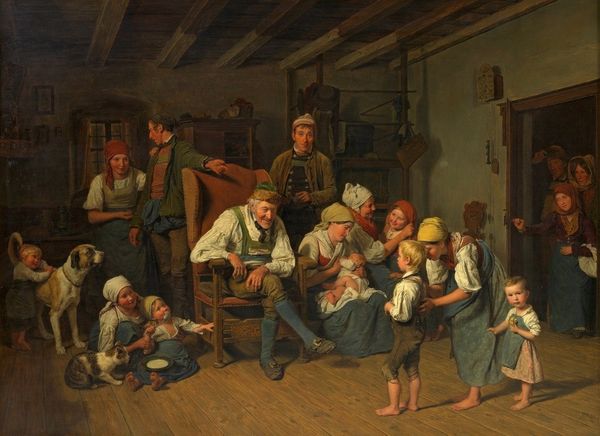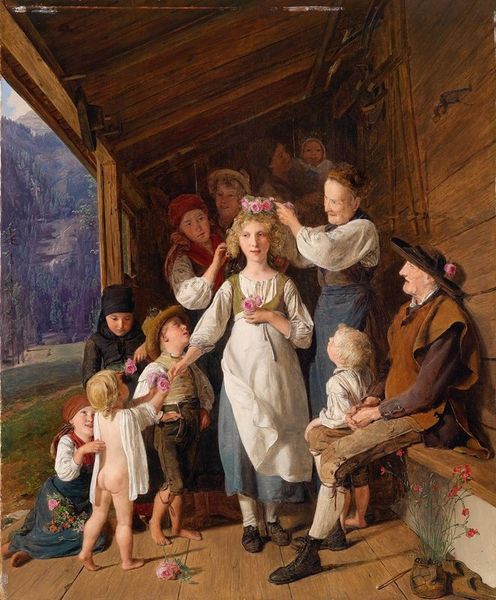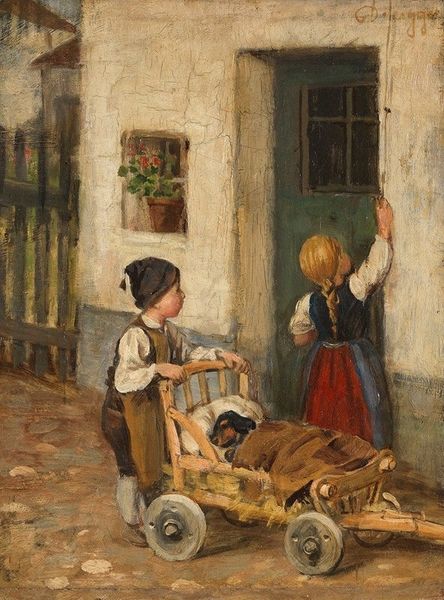
painting, oil-paint
#
painting
#
oil-paint
#
landscape
#
oil painting
#
group-portraits
#
romanticism
#
genre-painting
#
realism
Copyright: Public Domain: Artvee
Curator: Welcome. Today we’re looking at “Auf Dem Schulweg,” a genre painting rendered in oil. The artist, Franz von Defregger, places us squarely within a scene of everyday life. Editor: It evokes a sense of idealized innocence. There's an almost theatrical arrangement to the group, as if they're performing the act of going to school. A rather clean and orderly vision of labor and education. Curator: Defregger, working in the late 19th century, became quite famous for depicting rural life, particularly scenes from the Tyrol region. This piece reflects a fascination with pre-industrialized societies. The popularity of these artworks bolstered a rise in cultural pride for some while generating an exotic, simplistic idea of the region. Editor: You’re right, there’s a calculated construction to the image of childhood innocence. Take for instance the composition; Defregger highlights these figures so dramatically with clothing and their perfect accessories; they seem less like children, and more like archetypes of purity and diligence, crafted in a way to manufacture particular ideological meaning. What sociopolitical role might you attribute to artwork of this style at that moment in history? Curator: Good question. In the context of burgeoning nationalism and industrial expansion, Defregger's work offered viewers an appealing alternative: a celebration of tradition and local culture amidst a rapidly changing world. The artist idealizes the idea of children as keepers of rural, tradition through dress and labor in this work and throughout his career. This connects with institutional support for this sort of artwork: it validated the present social and political order. Editor: This idyllic portrayal also masks a much more nuanced reality. While it may be a snapshot of a region's traditions, it also omits critical issues and social realities of the working class at that time. Does the artist's background factor into your assessment of the choices made and not made in his artistic process? Curator: Most definitely. As an academic painter with ties to Munich, Defregger catered to a specific audience seeking to define, and, arguably, to control, ideas surrounding their cultural heritage and to establish certain idealized forms of civic life and citizenry. He and others participated in the project of building social cohesion by showcasing what life was and what it should be, not always accounting for actual diversity. Editor: Food for thought. In today's world, we might view pieces such as these through different lenses, grappling with questions of representation, authenticity, and the potential manipulation of collective memory, which certainly alters the experience and reception of Defregger's vision of “going to school.” Curator: It does make you think twice about these idyllic images and the role they played in constructing a national identity.
Comments
No comments
Be the first to comment and join the conversation on the ultimate creative platform.
